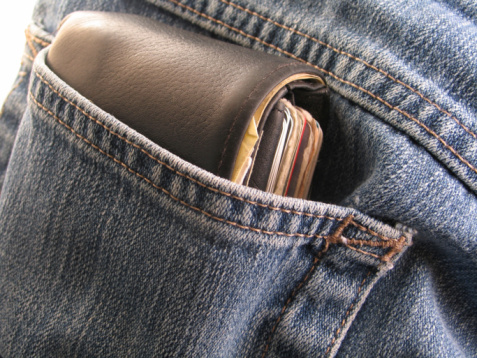Britain moved another step closer to becoming a cashless society last year. According to Payments UK, which represents the major banks, building societies and payment providers, 2015 was the first year that cash was used for less than half of all payments by consumers.
The story made it to the front page of The Guardian. The paper reported that cash usage will be eclipsed by debit cards and contactless payments by 2021. As for 2015, cash made up 45.1 per cent of payments, compared with 64 per cent in 2005, and is expected to fall to just a quarter by 2025.
More than one billion ‘wave and pay’ transactions took place last year. Since the start of 2016, contactless use has gathered pace, particularly on the London Underground network. On the high street, one in six card purchases are now contactless, with Tesco leading the way.
But don’t write off the cheque just yet. More than 500 million cheques were written in 2015, confounding expectations that the payment method is disappearing, according to the BBC. The research, also by Payments UK, said that represented a 13 per cent decline on the previous year.
It said the figures showed that cheques are still valued as a means of payment. Cheques had been due to be phased out by 2018, until MPs forced a change of heart by the industry. Banks have promised to keep processing them for as long as necessary.
Some banks, such as Barclays, have also introduced ‘cheque imaging‘, allowing consumers to take a photograph of a cheque and send it to the bank via their smartphone.
Rip-off Britain
The Guardian also reports that the City regulator is being urged to impose caps on charges for unarranged overdrafts to stop financially vulnerable customers being ripped off by their banks.
The Financial Conduct Authority should go further than the competition watchdog, which last week stopped short of issuing mandatory pricing restrictions on banks, according to Rachel Reeves, a Labour MP who sits on the Treasury select committee.
The Competition and Markets Authority, which has been investigating the banking sector since July 2014, last week said banks should set a maximum charge for unauthorised overdrafts and publish the fee. The banks would be allowed to set their own maximum.
Brexit fears
Leaving the European Union would tip the UK into a year-long recession and lower Britain’s economic growth by 3.6 per cent, according to Treasury analysis. The country would suffer an ‘immediate and profound’ economic shock of its own making, Chancellor George Osborne, who released the study, warned.
But Vote Leave’s Iain Duncan Smith said people would not believe the Treasury’s ‘deeply biased view of the future’. Flying highRyanair says it expects its average fare to fall by 7 per cent this year as it cuts prices to boost its market share amid intensifying competition. ‘If there is a fare war in Europe, then Ryanair will be the winner,’ Ryanair chief executive Michael O’Leary said.
The cuts came as the budget airline reported a 43 per cent rise in net profit to €1.2 billion for the full year to the end of March, just short of analyst forecasts. Revenues rose 16 per cent to €6.5bn for the year.





Comments